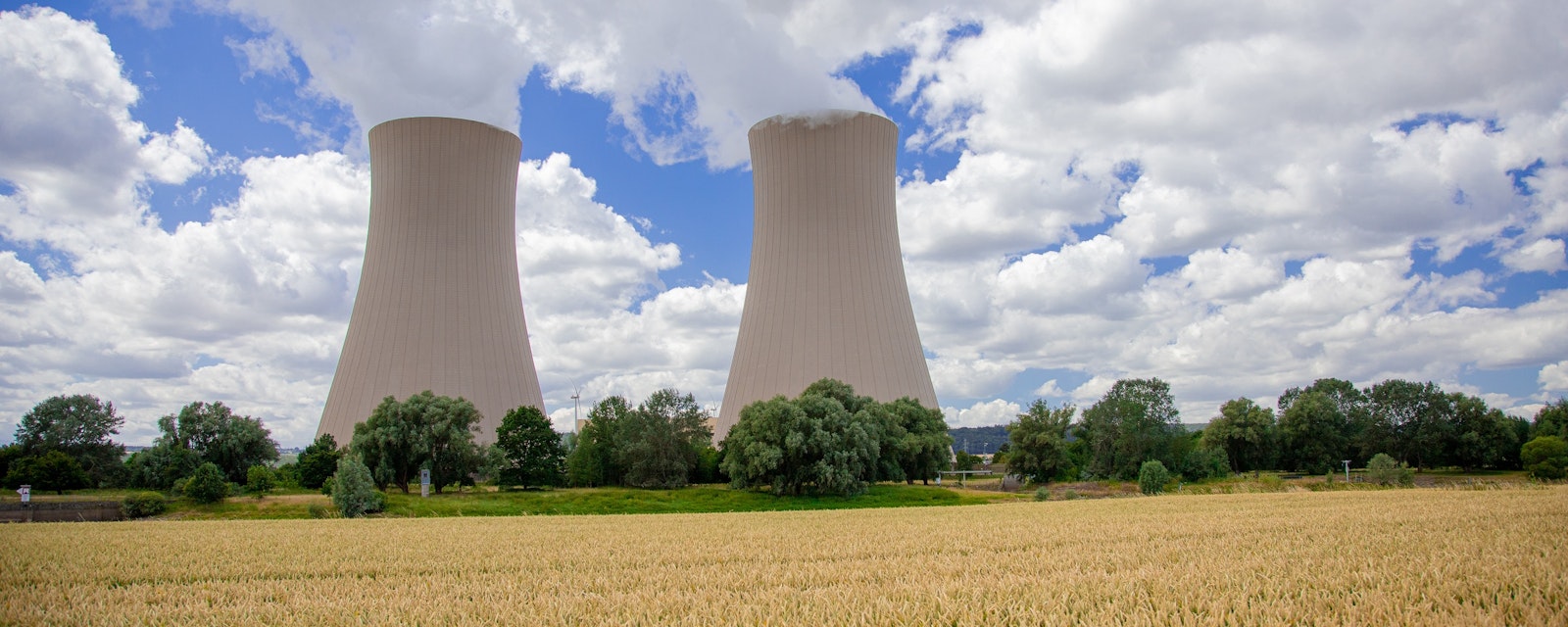In a rare move for any German chancellor, Olaf Scholz has unilaterally decided to keep all three remaining nuclear power blocks in service throughout the winter until April 2023.
Meanwhile, at a gathering of European Social Democrats, Scholz called for renewed efforts to close a transatlantic trade deal between the EU and the US. Scholz keeps aiming for the political center ground, confronting especially his Green coalition partners with the difficult tradeoffs arising in the context of Russia’s war in Ukraine.
Nuclear
Scholz’s decision on energy followed weeks of infighting between his coalition partners, the pro-nuclear Liberals (FDP) and the Greens. Under Germany’s nuclear exit plan, all three remaining blocks had so far been earmarked for final phase-out in December 2022.
The chancellor’s move is intended to further reduce gas consumption during the beginning heating period. Extending the lifespan of the remaining nuclear power blocks will help with replacing gas – as well as carbon-intensive coal and lignite – as sources for electricity generation. At the same time, the extension will not require the acquisition of new nuclear fuel rods. April 2023 is now the new date to complete Germany’s nuclear exit.
In making this decision, Scholz has formally used his constitutional competence “to set the overall direction of policy” – a rare move in Germany’s system of coalition government where the different parties usually negotiate until a compromise has been reached. However, the FDP and the Greens had proven unable to agree on a solution for weeks, while the looming winter increased public pressure for Scholz to take a stance.
Politically, this outcome will be most difficult for the anti-nuclear Greens. Scholz’s decision came only hours after the Greens’ federal conference had decreed that only the two reactors in Germany’s southern industrial heartlands – where electricity consumption is high, renewables are scarce, and grid connections to northern offshore wind parks are lacking – should be allowed to run for longer. The FDP, in contrast, had wanted to acquire new fuel rods and keep all three blocks in service until April 2024.
Scholz is reining in the Greens, sending the clear signal that in a three-way coalition, it is not the politically most confident members who set policy unilaterally. Green ministers remain the most popular politicians, and the party is doing well in the polls. Instead, the chancellor is providing the ailing FDP with a much-needed boost. Most of all, however, he is positioning himself as the pragmatic decision-maker at the center between his two warring coalition partners. The signpost to watch is whether potential shortages of gas – and perhaps even electricity – in the coming winter months could re-ignite calls to extend the nuclear extension.
Trade
A comparable political pattern is on display in the debate about global trade. Scholz’s planned trip to China in November has created renewed debate about Germany’s economic links with authoritarian countries. This has included calls for Scholz not to travel with the traditional delegation of CEOs wanting to close business deals for German companies.
Scholz is unlikely to heed such calls. However, changes in political sentiment, the shock of Russia’s war in Ukraine, and new German and European regulations, for instance, on supply chain due diligence, all mean that the stance vis-à-vis China keeps hardening. At the same time, the chancellor is again aiming for the pragmatic center ground. He is taking the side of the pro-trade FDP and confronting his Green coalition allies – as well as Germany’s European partners – with the difficult tradeoffs connected to Europe’s growing skepticism of China.
Scholz’s line is that criticism of Beijing and calls for European “strategic autonomy” are warranted, especially in light of Russia’s war on Ukraine, but must not be used for an agenda of rolling back global trade as such. Instead, for Scholz, on the flip side of a more “values-based” foreign (economic) policy must be renewed efforts to increase trade with other liberal democracies. At a meeting of European Social Democrats in Berlin last weekend, Scholz, therefore, called for a new push to agree on a transatlantic trade agreement between the EU and the US.
The political chances of this materializing any time soon are slim, not least given the more-than-dubious outlook for any meaningful trade agreements in US domestic politics. However, Scholz’s positioning makes it clear that while the German answer to Russia’s war on Ukraine will be a deep readjustment – “Zeitenwende” is his own much-quoted words – this must not mean a turn to purely consumption-focused economic policies or outright “deglobalization.”





